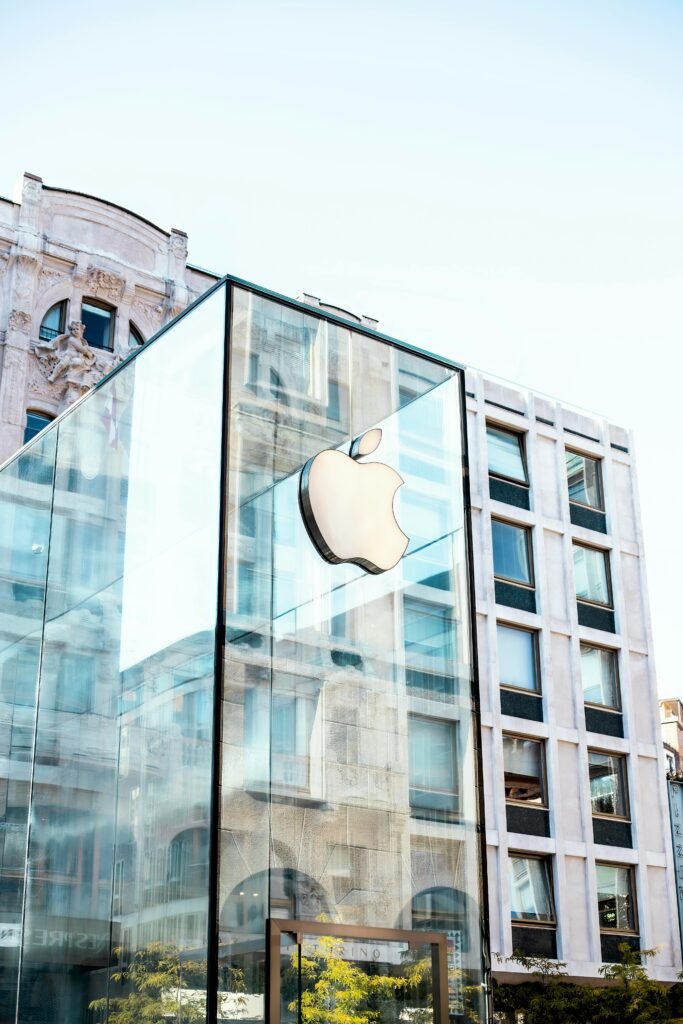Your Fav Brand Apple is Being Sued for Monopoly

In a striking move, the U.S. Department of Justice, backed by 15 states and the District of Columbia, has thrown the gauntlet at Apple, the titan of tech. They’re charging this behemoth with a grand play of power, accusing it of monopolizing the smartphone arena—a dramatic scene that has everyone whispering about the future of the iPhone, the App Store, and indeed, the very fabric of the digital marketplace.
The Core of the Monopoly Accusation
In the heart of the lawsuit against Apple lies a series of accusations that paint a picture of a tech giant fiercely guarding its turf, often at the expense of competition and innovation. Here’s a breakdown of the core allegations:
- Restrictive Practices and Market Control:
- Cloud Streaming and Super Apps: Apple has been accused of blocking cloud streaming gaming apps and innovative super apps, limiting consumer access to diverse content and stifling competition.
- Device Compatibility: The tech giant ensures Apple Watches function exclusively with iPhones, discouraging users from exploring other brands.
- Payment Processing: Apple mandates the use of its digital wallet for third-party services, imposing a fee on each transaction.
- Messaging and Communication:
- iMessage Exclusivity: Deliberately disrupting cross-platform messaging, Apple makes non-iPhone users’ texts appear as green bubbles in iMessage, subtly discouraging communication with Android users.
- Legal and Regulatory Challenges:
- Antitrust Lawsuit: The U.S. Department of Justice, supported by 16 state and district attorneys general, has filed a lawsuit against Apple for monopolization or attempted monopolization of the smartphone market, in violation of Section 2 of the Sherman Act.
- Alleged Monopoly Power: Apple is accused of having monopoly power in the smartphone and performance smartphones markets, engaging in anticompetitive behavior such as blocking mobile cloud streaming services, excluding cross-platform messaging apps, and limiting third-party digital wallets.
This section of the lawsuit underscores the breadth of Apple’s alleged anticompetitive conduct, affecting everything from the apps we use to the devices on our wrists. It’s a complex web of accusations that, if proven, could have significant implications for Apple and the tech industry at large.
Impact on Consumers and Competitors
In the wake of the Apple monopoly lawsuit, the potential repercussions for consumers and competitors are vast and varied. Here’s a closer look:
For Consumers:
- Enhanced Interoperability: Expected improvements include better cross-platform messaging, with features like read receipts and higher quality media sharing, making it less awkward for Apple users to communicate with Android customers.
- More Choices, Lower Costs: The lawsuit may lead to more affordable app subscriptions and additional payment options, offering greater freedom for app developers and more consumer choice.
- Risks and Rewards: While a more diverse app ecosystem promises innovative functionalities and customization options, it also brings potential security and privacy risks that users must navigate.
For Competitors:
- Level Playing Field: Competitors, particularly app stores like Google Play, could benefit if Apple is compelled to reduce its commission rates or alter its App Store policies, fostering increased competition and innovation.
- Hardware Harmony: Apple might be required to allow hardware from other companies to interact with its devices and services, potentially leading to a broader range of affordable options for consumers but possibly at the expense of the tightly integrated ecosystem that many Apple users value.
Overall Market Impact:
- Potential for Innovation: The lawsuit could significantly shake up the iOS app market, encouraging a more vibrant and competitive environment that benefits both consumers and developers.
- Security Considerations: With the expected increase in app diversity and functionality, Apple may need to provide more equitable API access, enhancing third-party app competitiveness but also requiring users to be more vigilant about app permissions and security.
This multifaceted impact underscores the lawsuit’s potential to transform not only the market dynamics between Apple and its competitors but also the overall digital ecosystem, offering both opportunities and challenges for stakeholders.
Apple’s Defense and Response
In response to the accusations, Apple has mounted a robust defense, emphasizing several key points to counter the monopoly lawsuit. Here’s a breakdown of their main arguments:
- Security and Privacy Concerns:
- Apple labels third-party app stores as potential privacy and security risks, advocating for the App Store’s exclusive model as a protective measure.
- The tech giant explains its hesitance to develop iMessage for other phones, citing usability and security concerns, but notes efforts to enhance cross-platform messaging.
- App Store Control Justifications:
- Asserts the necessity of controlling the App Store to ensure app quality and safety for consumers.
- Highlights that their commission rates are in line with other digital marketplaces, dismissing claims of exorbitant pricing.
- Points out that developers have the freedom to distribute apps via other channels, such as their websites.
- Market Position and Ecosystem Benefits:
- Denies a dominant market position by pointing to fierce competition from Android devices, which hold a larger market share.
- Emphasizes the seamless integration and innovation driven by their ecosystem, arguing it enhances user experience.
- Stresses equal treatment for all apps and the absence of barriers for developers wishing to transition to other platforms.
Apple’s defense showcases their stance that their practices are pro-competitive, aiming to benefit consumers and foster innovation within the tech industry.
Potential Implications of the Lawsuit
The potential implications of the lawsuit against Apple are vast, with far-reaching effects not only on the company’s business practices but also on the tech industry as a whole. Here’s a breakdown of what could be on the horizon:
- Business Model and Market Dynamics:
- Significant changes in how Apple charges app developers and customers, potentially leading to more competitive pricing and diverse payment options.
- A shift in digital content bundling and service offerings, echoing the antitrust settlement with Microsoft in 2002.
- Tech Industry and Innovation:
- A precedent-setting outcome influencing future antitrust cases, fostering a more regulated digital marketplace.
- Potential stifling of innovation within Apple, impacting U.S. economic growth and global tech leadership, particularly against strategic competitors like China.
- Consumer and Developer Impact:
- Enhanced competition could lead to more innovative and affordable tech solutions for consumers.
- Developers may find a more level playing field, with increased opportunities for app distribution outside the App Store.
This lawsuit underscores the critical balance between fostering innovation and ensuring competitive practices in the rapidly evolving tech landscape.
